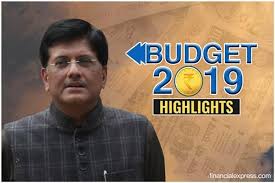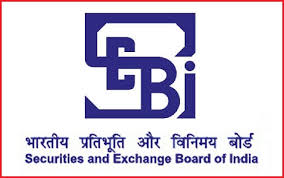
Over five consecutive days of interaction with the country’s financial media, FM Nirmala Sitharaman provided the break-up of PM Modi’s Rs 20 lakh crore COVID-19 stimulus for India.
At as much as 10% of GDP, the package did not appear to leave any major sphere untouched as Prime Minister Modi brought out the fiscal artillery to complement RBI’s monetary measures spread over the past few weeks, putting India firmly in the league of biggies that have gone all out against the virus.
In his speech, Mr. Modi said his package would focus on land, labour, liquidity and laws, and would deal with such sectors as cottage industries, MSMEs, the working class, middle class and industry. He also talked of focusing on empowering the poor, labourers and migrant workers, both in the organised and unorganised sectors.
Dubbed Atmanirbhar Bharat Abhiyaan, this Covid relief package puts bold reforms at the heart of Modi’s stated plan to make India self-reliant so that any other crisis that may emerge in future could be efficiently tackled. Below we collate all the details that emerged in five tranches over the past five days.
FIRST TRANCHE
MSME measures
- Collateral free automatic loans- a move that’ll enable 45 lakh units to restart work and save jobs. 4 year tenor with 12 months moratorium. 100% credit guarantee on principal and interest – Rs. 3 Lakh Crores (60k Cr cover)
- Subordinate debt provision of Rs 20,000 crores for 2 lakh stressed MSMEs. Besides, there will be Rs 50,000 crore equity infusion via Mother fund-Daughter fund for MSMEs that are viable but need handholding. A fund of funds with corpus of Rs 10,000 crore will be set up to help these units expand capacity and help them list on markets if they choose.
- Definition of MSMEs revised — the move will allow MSMEs to aim for expansion without losing benefits. Differentiation between manufacturing and service units to be removed.
Micro units – Investments upto 1 Cr + Turnover upto 5 Cr
Small units – Investments upto 10 Cr + Turnover upto 50 Cr
Medium units – Investments upto 20 Cr + Turnover upto 100 Cr
- Government tenders upto 200 Crores will no longer be on global tender basis. Global tenders will be disallowed for upto 200 Crores. This will make MSMEs eligible to participate in Government purchases.
- Post Covid, e-market linkage to be provided for all MSMEs. Receivables by MSMEs from the Central Government and all PSUs will be cleared in next 45 days
For non-bank lenders
- Rs 30,000 crore special liquidity scheme for investing in investment grade debt paper of NBFCs, HFCs and MFIs. These NBFCs are those that are also funding MSMEs. These will be fully guaranteed by government of India.
- Rs 45,000 crore partial credit guarantee scheme 2.0 for NBFCs. The first 20% loss will be borne by the guarantor that is government of India.
- For Discoms, a one-time emergency liquidity injection of Rs 90,000 crore against all their receivables. The states will guarantee it.
For employees
- Liquidity relief of Rs 2,500 crore EPF support to all EPF establishments. The EPF contribution will be paid by the govt for another 3 months (till August). It will benefit more than 72 lakh employees.
- Statutory EPF contribution for all organisations and their employees covered by EPFO to be reduced to 10% from 12% earlier (This doesn’t apply to govt organisations). This will help infuse Rs 6,750 cr of liquidity into these organisations.
For Power distribution companies
- Power distribution companies will get Rs 90,000 crore liquidity against receivables from state-owned Power Finance Corp. and Rural Electrification Corp. This will allow these discoms to pay dues to power producers.
For Contractors & others
- An extension of up to 6 months (without costs to contractor) to be provided by all Central Government Agencies like Railways, Ministry of Road Transport & Highways, Central Public Works Dept.
- On real estate, urban development ministry will issue advisory to states/UTs so that the regulators can invoke force majeure. The regulators can suo moto extend completion/registration dates for six months for projects expiring on or after March 25, 2020.
- A reduction of 25% of existing rates of Tax Deducted at Source (TDS) & Tax Collection at Sources (TCS) from tomorrow till March 31, 2021. This will release Rs 50,000 crores.
Due date of all Income Tax Return filings extended from July 31 to November 30. Vivaad se Vishwas scheme extended till December 31,2020, without any extra payments.
All pending refunds to charitable trusts and non-corporate taxpayers (but including LLP) will be issued immediately
Date of assessments getting barred as on Sep 30, 2020 extended to December 31, 2020. Date of assessments getting barred as on March 31, 2021 extended to September 30, 2021.
SECOND TRANCHE
Focus on migrant workers, small farmers and the poor, in the manner shown below:
Free food for migrants
- For those migrants who don’t have NFSA cards or state cards, 5 Kgs of wheat or rice per person and one kg channa per family per month for next two months to be provided and it will reach through the state governments. This will entail Rs 3,500 crore and is likely to benefit around 8 crore migrants.
One Nation, One Ration Card
- National Portability Ration Cards can be used in any ration shops that will be applicable across the country. By August 2020, 67 cr beneficiaries in 23 states or 83% of all PDS beneficiaries will get covered. By March 2021, 100 per cent will be covered.
Rental accomodation
- Under PM Awas Yojaana, scheme for rental housing for migrant workers. Under the scheme incentives will be offered to private manufacturing units and industrial units to develop affordable housing, converting govt funded houses into affordable renting accommodations for migrant workers. Shall be done on PPP on concessionaire basis. State government agencies will also be incentivised to develop affordable housing.
MUDRA Shishu loan
- Those who have availed loans up to Rs 50,000, an interest subvention of 2% for next 12 months after the moratorium period extended by RBI ends. Three crore people will get benefit of Rs 1500 crore.
Street Vendor
- Special scheme for street vendors to avail Rs 5,000 crore loan facility. Will be given Rs 10,000 of working capital.
Affordable Housing
- Credit-linked subsidy scheme for middle income households in the income group Rs 6-18 Lakh extended to March 2021. The CLSS scheme was operationalised from May 2017 and extended up to March, 2020. Now, it has been extended till March 2021. This will lead to investments of Rs 70,000 crore in housing and kick-start sectors like steel, cement and create jobs.
For Tribals
- Rs 6,000 crore worth of proposals have come from states under CAMPA funds. Tribal people will get employment in forest management, wildlife protection/management and other forest related activities.
For Small/Marginal Farmers
- The government is extending Rs 30,000 crore additional capital emergency funds through NABARD for post-harvest Rabi and Kharif related activities for small and marginal farmers.
- Under the PM Kisan Credit Card, Rs 2 lakh crore of concessional credit to boost farming activities and it will benefit 2.5 crore farmers. Those in animal husbandry and fisheries will also be included.
THIRD TRANCHE
For framers, and such sectors as food processing and allied activities.
For Upgrading Infrastructure
- One lakh crore fund for strengthening the farm gate infrastructure like cold chains, post harvest storage infrastructures etc.
- Rs 10,000 crore fund for micro food scheme will be executed with cluster based approach. Will benefit 2 lakh Micro Food Enterprises. For instance, Bihar can have Makhana cluster, Kashmir can have Kesar cluster, Telangana can have Turmeric cluster, Andhra can have chilli cluster.
- Govt will launch Pradhan Mantri Matsya Sampada Yojana for development of marine and inland fisheries. Rs 20,000 crore will be spent to fill the gaps in value chains. This will lead to an additional fish production of 70 lakh tons in next five years and provide employment to 55 lakh people.
- Rs 13,343 crore for vaccination of livestock in India to eradicate foot and mouth disease.
- Rs 15,000 crore will be spent on ramping up the dairy infrastructure. Also, investments will be made in cattle feed.
- Rs 4,000 crore for growing of herbal and medicinal plants. Ten lakh hectares of land will be used for growing medicinal and herbal plants and will provide income of nearly Rs 5,000 crore for farmers.
- Rs 500 crore have been allocated for beekeeping. This will help 2 lakh beekeepers.
- TOP to TOTAL: Rs 500 crore for Operation Greens that will be extended beyond tomatoes, potatoes and onion and will applicable to all vegetables.
Proposes amendment to Essential Commodities Act to enable better price realisation for farmers. Food stuffs including edible oils, oilseeds, pulses, onions and potato will be deregulated. And stock limits will be imposed only under exceptional circumstances like famine and surge in prices.
Agriculture Marketing Reforms
32. A central law will be formulated to provide (a) Adequate choices to sell produce at attractive price, (b) Barrier free inter-state trade, and (c) Framework for e-trading of agriculture produce.
Agriculture Produce Price and Quality Assurance
33. Facilitative legal framework will be created to enable farmers for engaging with processors, aggregators, large retailers, exporters etc. in a fair and transparent manner. Risk mitigation for farmers, assured returns and quality standardisation shall form integral part of the framework.
FOURTH TRANCHE
For Upgrading Infrastructure
Included structural reforms in 8 critical sectors- Coal, Minerals Defence Production, Airspace management, Social Infrastructure Projects, Power distribution companies, Space sectors and Atomic Energy.
Coal Sector
Government is introducing the commercial mining of coal. India needs to reduce import of substitutable cal and increase self-reliance in coal production.
34. The investment of Rs. 50,000 crores is for the evacuation of enhanced CIL’s (Coal India Limited) target of 1 billion tons of coal production by 2023-24 plus coal production from private blocks.
Minerals
35. Enhancing private investment in mineral sector.
36. FMalso explained the rationalisation of stamp duty payable at the time of award of mining leases.
37. 500 mining blocks would be offered through an open and transparent auction process, a joint auction of Bauxite & Coal mineral blocks will be introduced to enhance Aluminum industry’s competitiveness.
Defence Production
38. Indigenization of imported spares, separate budget provisioning for domestic capital procurement.
39. FDI limit in defence manufacturing under automatic route is being raised from 49% to 74%.
40. Corporatisation of Ordnance factory board was also announced.
Civil Aviation (Airspace Management, World Class Airports Through PPP, MRO HUB)
41. Restrictions on the utilisation of Indian Air Space will be eased so that civilian flying becomes more efficient.
42. Government is working hard to make India a global hub for for aircraft maintenance, repair and overhaul.
43. Airports Authority of India has awarded 3 airports out of 6 bid for operation & maintenance on (PPP) basis. Additional investment by private players in 12 airports in first & second rounds expected around Rs 13,000 crores.
Power Sector Reforms
44. Power Distribution Companies in Union Territories to be privatised in line with the new tariff policies. This will enable to strengthen industries and bring in efficiency in the entire power sector. This will also enable stability in the sector, announced the FM.
Boosting Private Sector investment
45. Boosting private sector investment in Social Infrastructure through revamped Viability Gap Funding Scheme of Rs 8,100 crores.
Space Sector
46. Boosting private participation in space sectors. Government is working on a liberal geo-spatial policy. Private sector to be co-traveller in India’s space sector journey through launches, satellite services, commented the Finance Minister.
Atomic Energy
47. The government intends to link India’s robust start-up ecosystem to the nuclear sector – Technology Development cum Incubation Centres will be set up for fostering synergy between research facilities and tech entrepreneurs. Establishment of research reactor in PPP mode for production of medical isotopes.
Fifth Tranche
48. MGNREGS: Additional funding of Rs 40,000 crore to the scheme over and above the Budgetary Estimate.
49. Health: All districts will have infectious disease hospitals while at the block-level, public health labs will be set up.
50. Education: PM eVidya programme to be launched immediately. Each Classroom from 1 to 12 will have one TV channel. Special e-content for visually & hearing impaired. Top 100 universities will be permitted to start online courses by May 30, 2020.
51. IBC reforms: Covid-related debt to be excluded from definition of default under the IBC. No fresh insolvency for next one year. Minimum threshold to initiate insolvency raised to Rs one crore from Rs one lakh earlier.
52. Decriminalising Companies Act: Violations under most of the Companies Act to be decriminalised. This will ease the burden on courts and tribunals. Seven compoundable offences under Companies Act being dropped, 5 offences to be dealt under alternative framework.
53. Listing norms: Companies can now list securities directly in foreign jurisdictions
54. New Public Sector Policy: Public sector enterprise policy: All sectors are open to the private sector while public sector enterprises will play an important role in defined areas. Govt will notify strategic areas and in them at least one PSE will remain but private sector will be allowed. In other sectors, PSEs will be privatised.
55. Additional resources to States: Centre has decided to increase borrowing limit of states from 3% to 5% for FY21. This will give extra resources of Rs 4.28 lakh crore to states. This despite, states having borrowed only 14% of the limit authorised to them. 86% remains unutilised. The additional borrowing limit has been linked with initiating reforms.
The finance minister also gave a break up of how the Rs 20 lakh crore was allocated among the five tranches and the previous schemes as well as the RBI measures.





